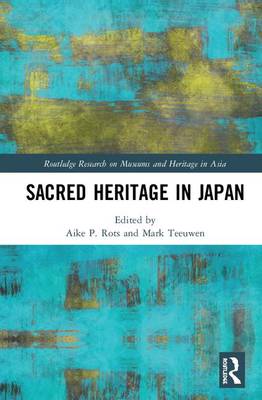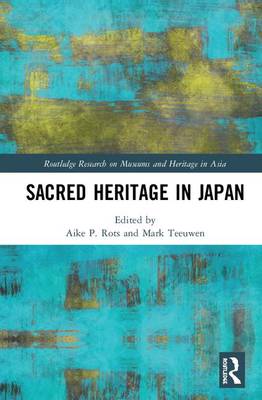
- Afhalen na 1 uur in een winkel met voorraad
- Gratis thuislevering in België vanaf € 30
- Ruim aanbod met 7 miljoen producten
- Afhalen na 1 uur in een winkel met voorraad
- Gratis thuislevering in België vanaf € 30
- Ruim aanbod met 7 miljoen producten
Sacred Heritage in Japan
Omschrijving
Sacred Heritage in Japan is the first volume to explicitly address the topics of Japanese religion and heritage preservation in connection with each other.
The book examines what happens when places of worship and ritual practices are rebranded as national culture. It also considers the impact of being designated tangible or intangible cultural properties and, more recently, as UNESCO World or Intangible Heritage. Drawing on primary ethnographic and historical research, the contributions to this volume show the variety of ways in which different actors have contributed to, negotiated, and at times resisted the transformation of religious traditions into heritage. They analyse the conflicts that emerge about questions of signification and authority during these processes of transformation. The book provides important new perspectives on the local implications of UNESCO listings in the Japanese context and showcases the diversity of "sacred heritage" in present-day Japan.
Combining perspectives from heritage studies, Japanese studies, religious studies, history, and social anthropology, the volume will be of interest to scholars and students who want to learn more about the diversity of local responses to heritage conservation in non-Western societies. It will also be of interest to scholars and students engaged in the study of Japanese religion, society, or cultural policies.
Specificaties
Betrokkenen
- Uitgeverij:
Inhoud
- Aantal bladzijden:
- 210
- Taal:
- Engels
- Reeks:
Eigenschappen
- Productcode (EAN):
- 9780367217709
- Verschijningsdatum:
- 16/04/2020
- Uitvoering:
- Hardcover
- Formaat:
- Genaaid
- Afmetingen:
- 155 mm x 236 mm
- Gewicht:
- 453 g

Alleen bij Standaard Boekhandel
Beoordelingen
We publiceren alleen reviews die voldoen aan de voorwaarden voor reviews. Bekijk onze voorwaarden voor reviews.










